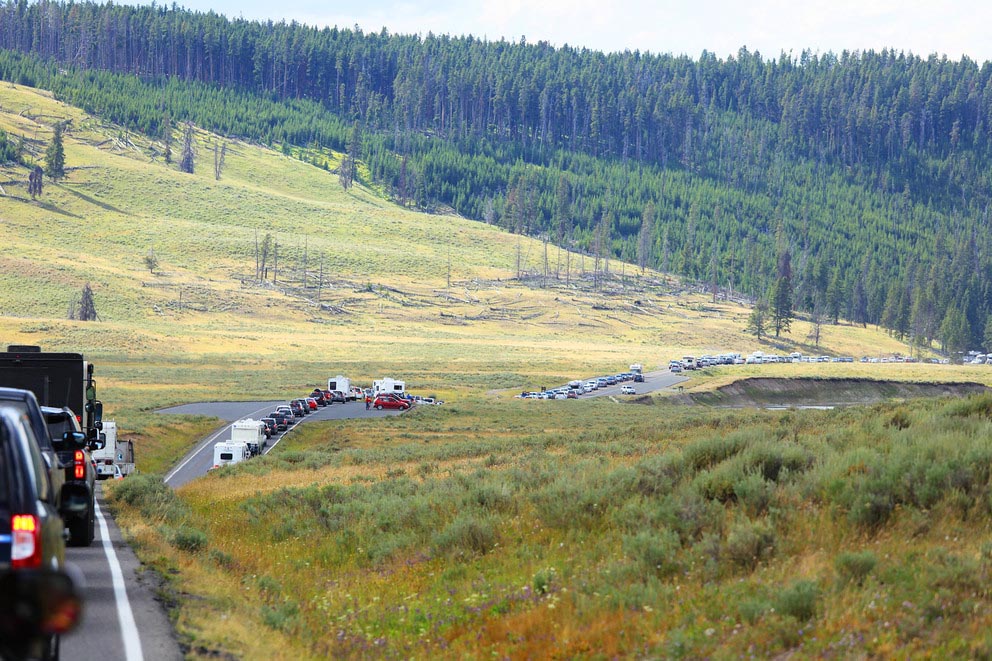
A traffic jam in a national park in the United States. IMAGE: GETTY IMAGES © JURGAR
Researcher to study evacuation scenarios at Rocky Mountain National Park
3/13/2020
UNIVERSITY PARK, Pa. — The continued rise in numbers of visitors to National Parks and National Park Service units increasingly stress infrastructure, resources and the environment.
Rocky Mountain National Park is no exception, and the park seeks to continually protect social and ecological resources, and provide information that can help keep visitors safe.
Bing Pan, associate professor of commercial recreation and tourism at Penn State, was recently awarded a research grant by Rocky Mountain National Park and the Continental Divide Research Learning Center to study evacuation times and strategies in two high-traffic park areas.
Pan and his co-investigators will build and calibrate a traffic micro-simulation model to estimate evacuation times in two busy park corridors — Bear Lake Road and Wild Basin — under different emergency scenarios.
Scenarios will consider drivers, riders and hikers who may be affected by both natural and manmade emergencies.
“The rising number of visitors and accelerating climate change will make it crucial for national parks to prepare for manmade disasters, such as wildfires and flooding,” said Pan. “Using simulation models, we can estimate the evacuation time for visitors, and help identify the best ways to manage visitor flow and evaluate evacuation strategies in those areas.”
Rocky Mountain National Park and the Continental Divide Research Learning Center aim to support collaborative research and education through an annual funding competition.
This project — a collaboration between researchers in the Penn State departments of Recreation, Park, and Tourism Management and Civil and Environmental Engineering — is one of five projects the groups funded for 2020.
In addition to Pan, collaborators at Penn State include Derrick Taff, assistant professor of recreation, park and tourism management; Peter Newman, professor and head of recreation, park and tourism management; and Vikash Gayah, associate professor of civil engineering.
The project will also afford the opportunity for two graduate students — one from each Penn State department — to assist work on simulation modeling and visitor data collection for one semester.



